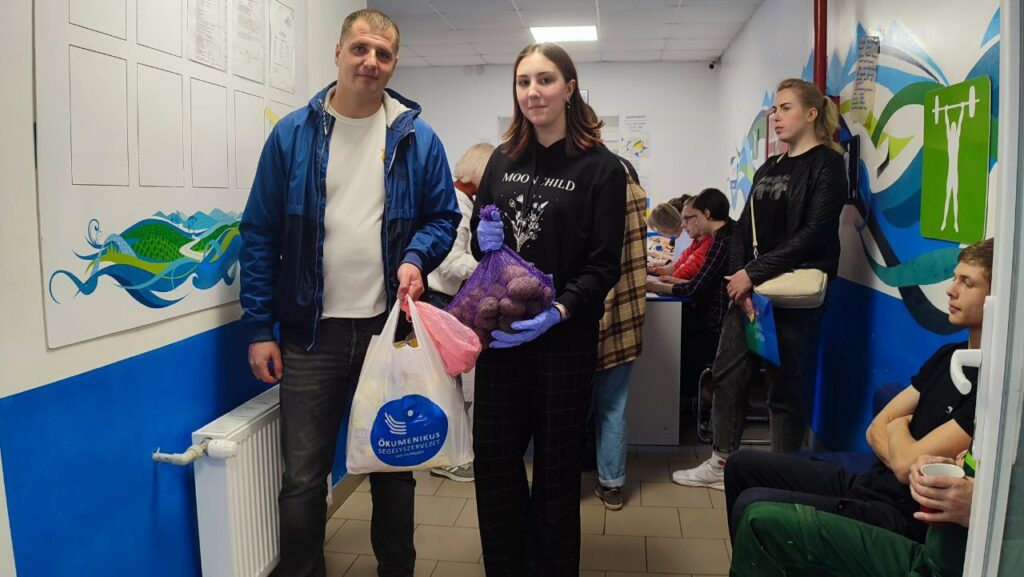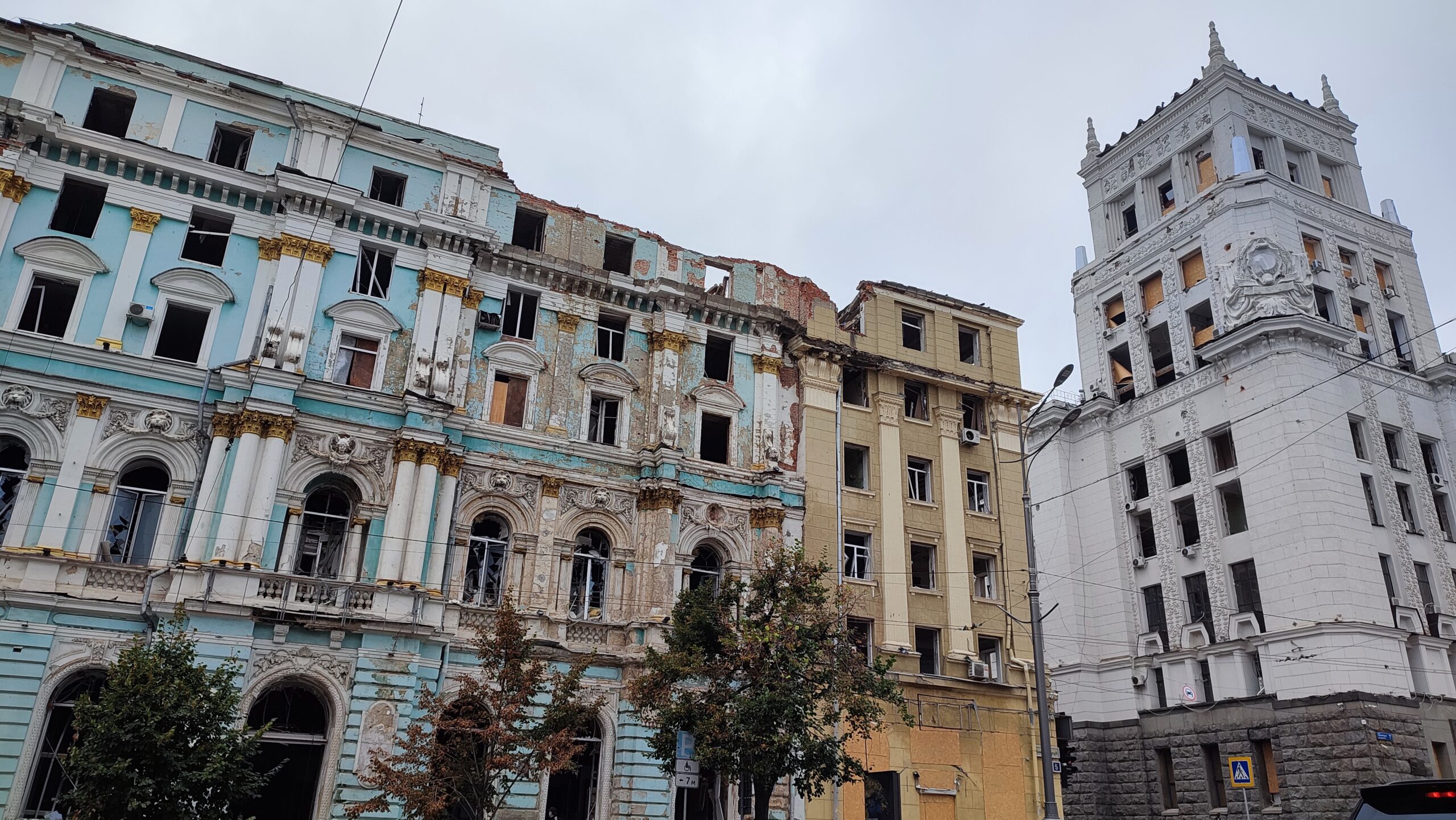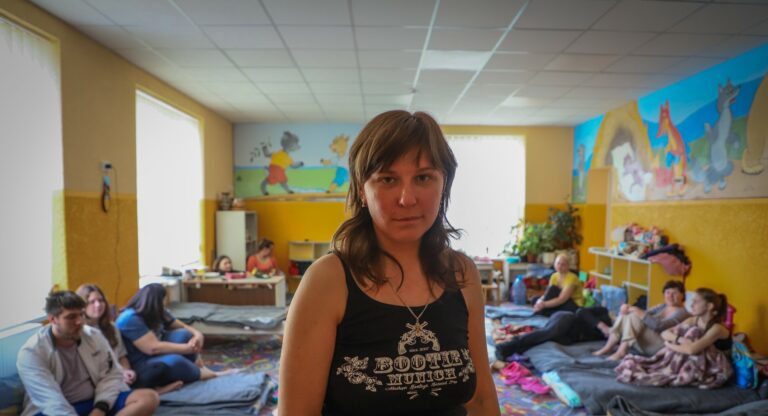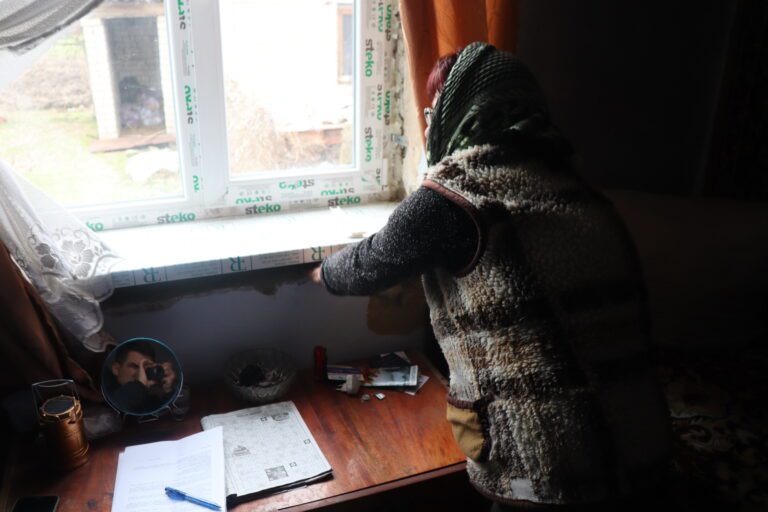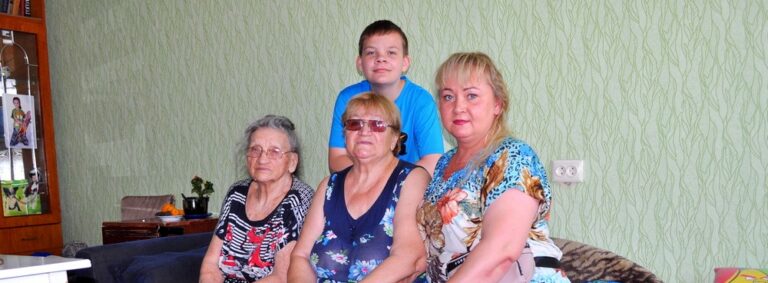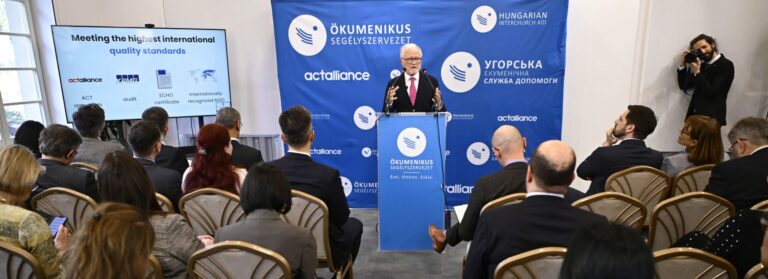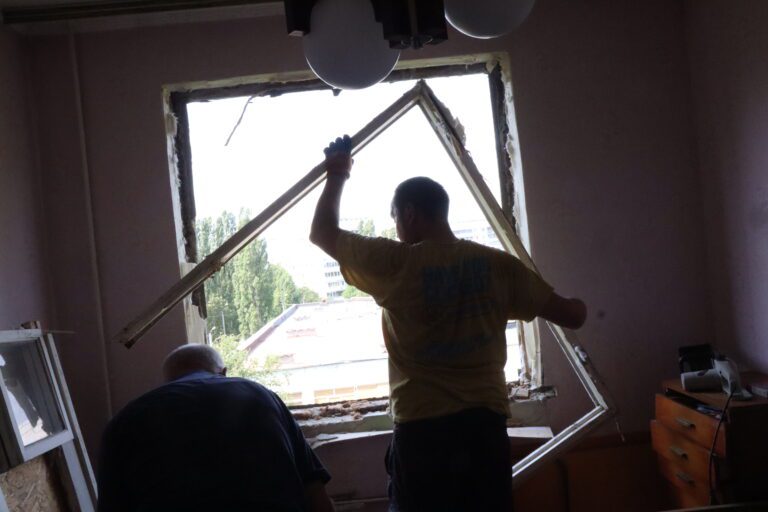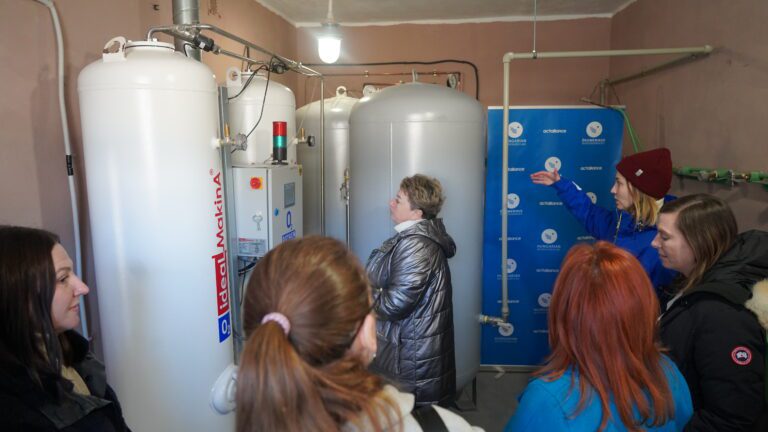Those who don’t make the news – Winter in the basements of Kharkiv
While the world looks to the newly liberated areas of eastern Ukraine, little is said about those who have been destitute since the first day of the war and whose situation has changed little. The combat events in the Kharkiv region can only mask the hardships endured for more than half a year by the people living here for so long. With winter approaching and temperatures dropping, issues such as broken and shattered windows, damaged walls and roofs, and the general lack of heating are coming to the fore. Hungarian Interchurch Aid (HIA) has carried out an extensive survey of the region to provide the fastest and most effective assistance possible to one of the worst-affected areas by the war. In the final episode of our multi-part series, our colleague Dániel Kiss returns to foggy Kharkiv.
Returning to the region’s capital city, the surveying team also met with representatives of Dyia (Action) civil society organisation, which oversees several social and aid programmes in Kharkiv. During the meeting, these volunteers could not stop listing the problems that make the humanitarian situation difficult in just the city alone. “Where do you think people have disappeared to in Saltivka? Most of them didn’t go back to their homes,” says Nadiya, project manager of the NGO in Kharkiv.
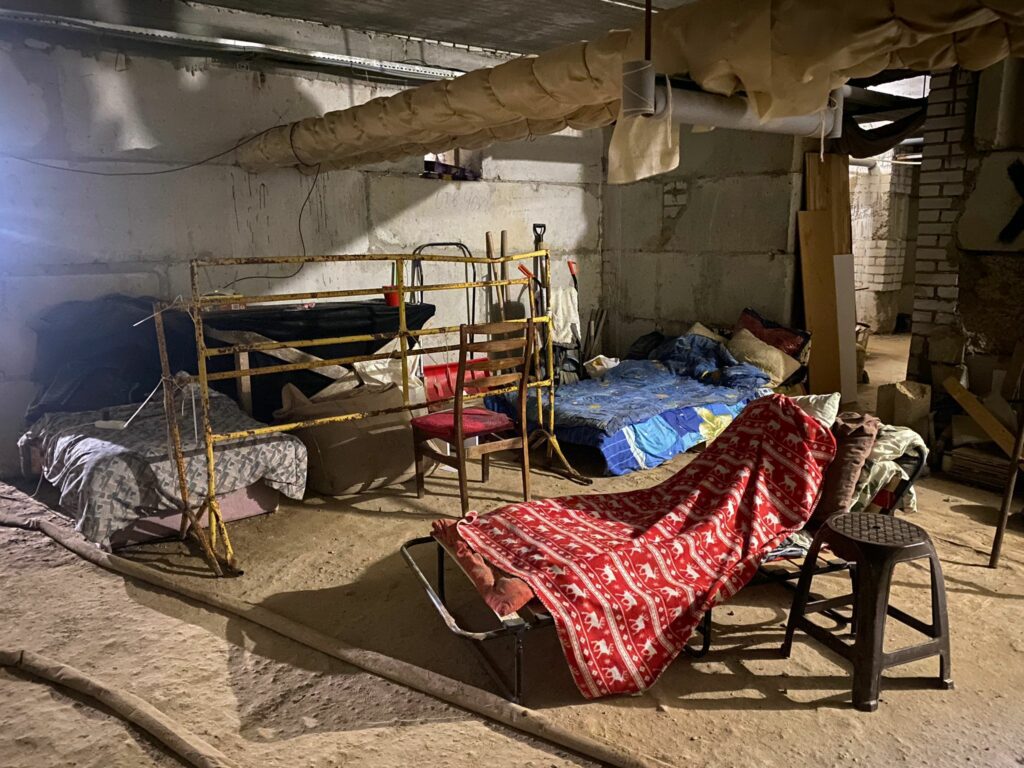

The problems in the Kharkiv region are linked causally. About half of the population has no work and therefore no income. In most cases, only those who have fled the occupied territory are eligible for financial assistance.Those who are left with little money or no income are intent on returning to their houses, even if the conditions at home are harsh. Some have no relatives elsewhere to stay with or have run out of money to pay the rent. The few, scattered, cramped, and ill-equipped temporary accommodation facilities in and around Kharkiv offer no better alternatives for long-term stays.
As a result, hundreds of people in the suburban areas of Kharkiv continue to spend the night in basements, and plan to stay there throughout the winter. Many of those living in such conditions practically only exist in the databases of local NGOs.
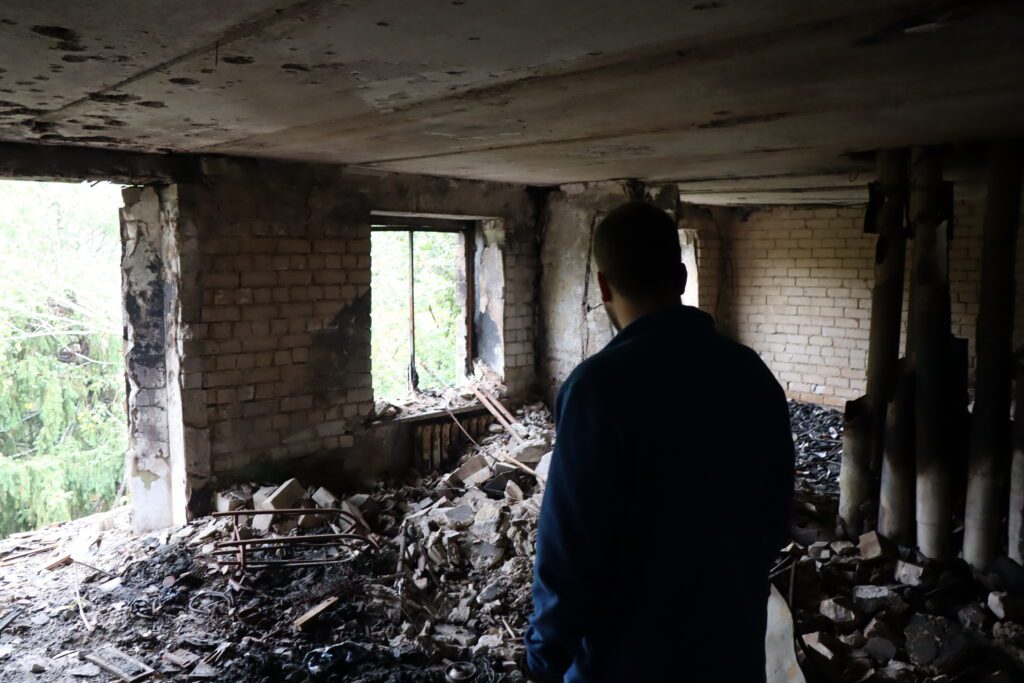

The heating season in Ukraine starts on 15 October. In Saltivka and other districts, it is suspected that community heating will be unavailable. The local policy dictates that for central heating to be turned on at least half of the residents in a building must be permanently living there. Another issue is insulation: If there are holes in the walls or missing windows, heat will escape from the building so central heating will not be turned on in that case either.
In the video below, a Kharkiv resident describes how he and his family are preparing for the winter in a basement and explains why they decided to stay, even though they know they will be without heating.
The situation is concerning. The possible outage of the Kharkiv power plant will definitely result in heat and electricity being cut not only in the city but also in the surrounding communities. Therefore, HIA is working around the clock to provide meaningful assistance both in terms of basic supplies and winterisation through its programmes that have proven effective in the past.
